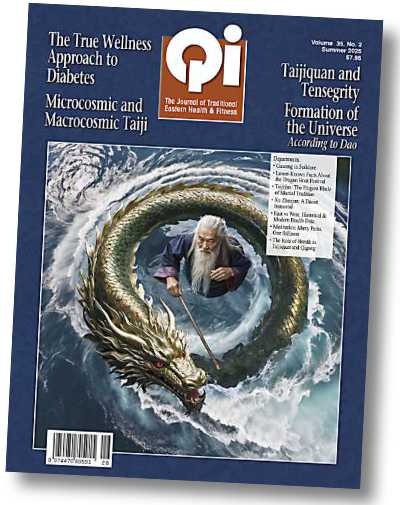"The China Study"
Modern Science Echoes Ancient Wisdom
In the 1980s, a landmark project known as "The China Study" set out to explore one of the most basic questions in health: how does what we eat affect how we live—and die? Led by Dr. T. Colin Campbell of Cornell University, in collaboration with Oxford University and the Chinese Academy of Preventive Medicine, this large-scale epidemiological study compared diets, lifestyles, and disease patterns in 65 counties across rural China. What they discovered surprised the Western scientific community—but might sound familiar to those steeped in Traditional Chinese Medicine (TCM).

A Rare Moment in Time
The study’s significance rests not only in its findings, but in the rare conditions under which it was conducted. At that time, China was in a unique transitional moment. Many rural regions still followed traditional food customs, largely untouched by Western fast food, packaged snacks, or high dairy and meat consumption. Villagers often grew their own vegetables, cooked fresh meals daily, and consumed animal protein sparingly. Other regions had high local meat consumption due to lack of transportation. These varied but relatively unchanged diets provided a living laboratory of nutritional diversity.
Today, such a study would be impossible. Urbanization, economic growth, and the global spread of processed foods have reshaped Chinese diets, especially among younger generations. Fast food chains and sugary drinks are now common in both cities and smaller towns. The health consequences of rising obesity, cardiovascular disease, and diabetes mirror those long seen in Western countries.
What the Data Showed
Researchers found that even small increases in animal protein consumption were associated with higher risks of chronic disease. One striking experiment, conducted alongside the population studies, involved lab rats fed controlled amounts of casein, the protein in milk. Those given higher percentages of casein had increased rates of cancer development, while those with plant-based diets saw reduced or no tumor growth.
In the rural counties where animal products were rarely consumed, chronic diseases were far less common. Blood cholesterol levels were lower, body weights healthier, and degenerative illnesses, including colorectal and breast cancers, occurred at a fraction of the rate seen in Western populations.
Perhaps most importantly, these findings suggested that many of these illnesses were not genetic inevitabilities, but largely preventable through diet and lifestyle choices.
TCM Has Known This for Centuries
In Traditional Chinese Medicine, food is not simply a source of calories or nutrients—it is a foundation of health, a form of daily medicine. The principle of yangsheng (养生), or “nourishing life,” emphasizes harmony with nature, moderation, and the prevention of imbalance through lifestyle. This includes seasonal eating, avoiding overeating, and choosing foods that support digestion and vitality.
Meat and dairy are not forbidden in TCM, but they are used sparingly and purposefully. Overconsumption is believed to create dampness, a condition linked to fatigue, sluggish digestion, and even the internal accumulation of “phlegm” that may obstruct circulation and Qi. In this light, the findings of The China Study seem less like a revelation and more like a rediscovery.
Whole grains, legumes, lightly cooked vegetables, and moderate use of warming spices have long been staples of health in Chinese households. These dietary patterns, long upheld by cultural wisdom, align strikingly well with the plant-based diets that the study found to be most protective.
What This Means for Us Today
Many people in the West are only now beginning to appreciate what ancient Chinese traditions have emphasized for generations: that health is not simply the absence of disease, but the result of how we live each day. While shifting one’s diet can feel daunting, the wisdom of both TCM and modern science suggest that even gradual changes can make a meaningful difference.
You don’t need to become a strict vegan or abandon cultural favorites. Instead, begin by reducing processed foods, eating more whole grains and fresh vegetables, and treating rich animal-based dishes as occasional enhancements rather than daily staples. Over time, these small shifts can lead to greater energy, improved digestion, and a reduced risk of chronic illness.
Changes in USA Dietary Guidelines
In a world of fad diets, food marketing, and ever-changing health advice, "The China Study" offers a rare moment of clarity—showing strong agreement between modern nutritional science and ancient wisdom. Yet despite growing scientific support for plant-based, whole-food diets, government food policy in the United States often sends mixed messages. While agencies like the USDA and NIH have acknowledged the benefits of fruits, vegetables, and fiber-rich diets, official recommendations still allow high levels of processed meats, added sugars, and sodium. Recent updates to U.S. Dietary Guidelines, for example, declined to lower the recommended limit for added sugars despite strong scientific consensus linking them to obesity, diabetes, and cardiovascular disease.
Moreover, the influence of agricultural and food industry lobbying has shaped not only what gets recommended but what gets subsidized. Federal subsidies still favor large-scale meat and dairy production, while fruits and vegetables—what TCM would call the true daily medicine—receive a fraction of the support. Food safety regulations, too, have been questioned in recent years, with debates over pesticide levels, ultra-processed ingredients, and the continued approval of additives banned in many other countries.
In contrast, TCM and yangsheng practices offer a different kind of guidance... one not shaped by industry but by observation, experience, and a holistic view of the human body in its environment. For those seeking better health, this is where the greatest value lies. It’s not about perfection or rigid rules, but about slowing down, paying attention, and making thoughtful choices.
Shifting toward a health-promoting diet doesn’t require radical changes overnight. Start with one or two daily meals centered on grains and vegetables. Choose seasonal produce. Minimize packaged foods. Treat meat as a flavoring rather than a main course. These small adjustments, rooted in both ancient Chinese practice and modern research, can help restore the body’s natural balance and support lifelong vitality, regardless of the latest policy debates or diet trends.
Vocabulary Guide
- Yangsheng (养生): "Nourishing life"; a philosophy of maintaining health and longevity through diet, lifestyle, and harmony with nature.
- Dampness: A TCM concept referring to internal conditions of heaviness, stagnation, or excessive moisture; often linked to diet and digestion.
- Qi (气): Vital energy; considered the life force circulating through the body and influenced by diet, breath, and emotion.
- Phlegm (痰): In TCM, a byproduct of disrupted digestion and fluid metabolism; may be visible (like mucus) or invisible (blocking energy and clarity).







